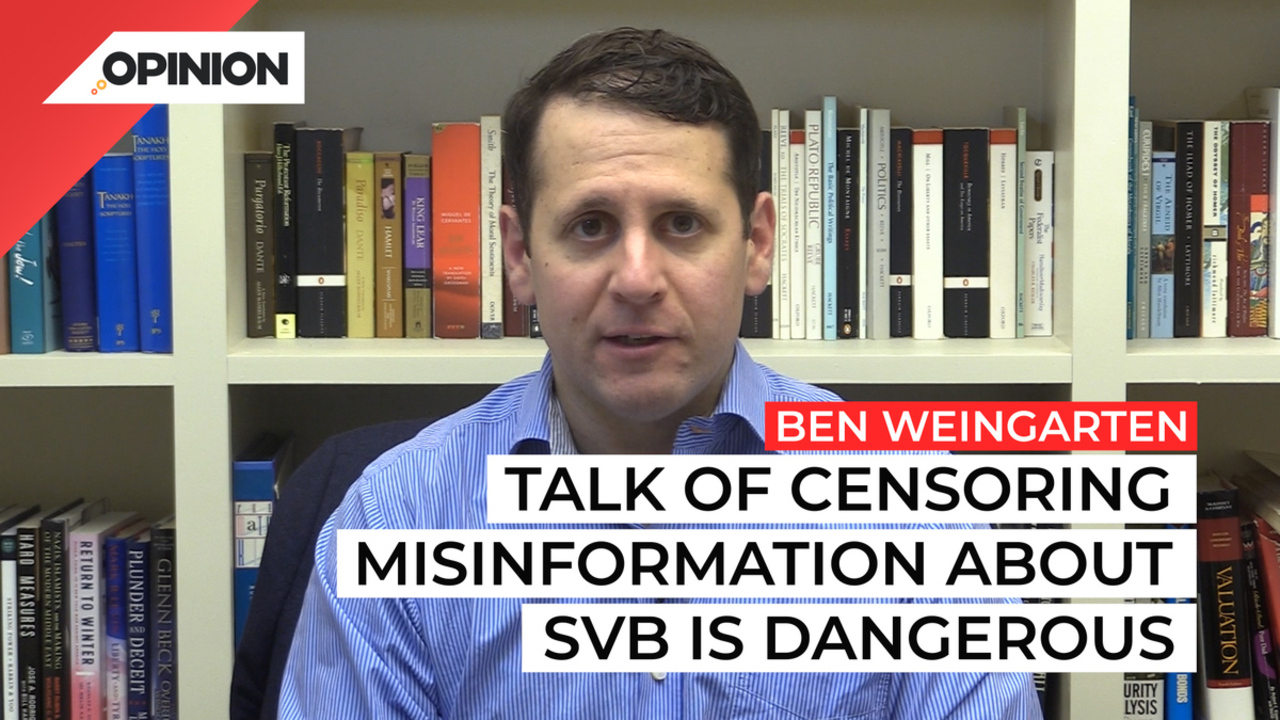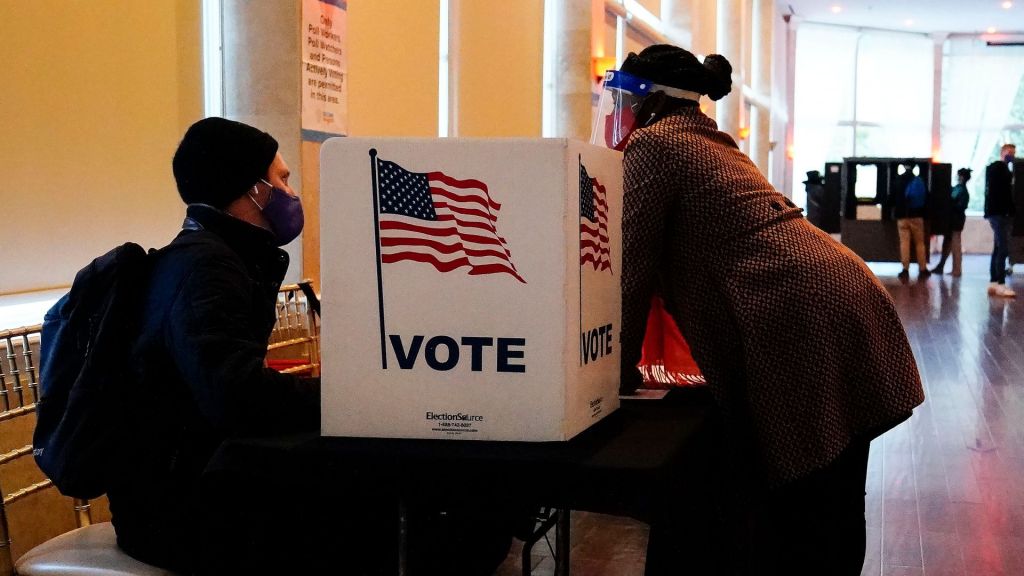
Commentary
-
Our commentary partners will help you reach your own conclusions on complex topics.
With the collapse of Silicon Valley Bank, the second-largest such failure in American history, any number of major storylines have emerged.
Would there be contagion? What would the consequences be of this massive bailout that authorities won’t call a bailout, of the bank’s largely uninsured depositors – and how great will the costs ultimately run? Why did this bank in particular get this support? Was Washington D.C. favoring Silicon Valley and the startups and venture capitalists so exposed to it? Where do interest rates go now? Who was most culpable – the Fed for blowing this massive bubble in financial assets, and encouraging broader speculation and risk-taking that helped make SVB so large, then punctured it – or the banks’ executives who took on totally unhedged risk leading to the collapse? What will the political effects be?
There are going to be many threads to pull at in the weeks ahead. But did you catch this one? In a call between members of Congress, their staffers, and representatives of the Fed, Treasury, and FDIC on Sunday, March 12, when the non-bailout bailout of SVB was being announced – prior to market opening – Democrat Senator Mark Kelly asked a question. According to Republican Congressman Thomas Massie, Kelly asked, in Massie’s words, “if there was a program underway on social media to censor information that would lead to a bank run.” Massie told journalist Michael Shellenberger’s “public” Substack that “I believe he couched it in a concern that foreign actors would be doing this. But he didn’t suggest the censorship should be limited to foreigners or to things that were untrue. The people from the three agencies couldn’t answer him and just sort of took a pass on the question.”
“On the briefing,” a Kelly spokesperson would later say, the “Senator…asked about foreign adversaries potentially trying to take advantage of this situation by spreading misinformation.” There are two disturbing aspects to this. One is that the Senator has now raised yet another area of subject matter ripe for censorship.
Spreading unauthorized views about the financial markets is now apparently something U.S. Senators believe demands intervention –seemingly First Amendment threatening intervention since he was talking to government agencies or at best quasi-private ones about working with social media companies to suppress speech.
One wonders, what speech will be subject to regulation? Everyone has an opinion in financial markets. Rumors always proliferate about companies.
What people say and don’t say can always have an effect on financial markets. Imagine the kinds of problems you’d run into trying to regulate speech about the health of companies. Bullish research of companies that go bust? Are we going to ban bearish financial research now? What about ridiculously bullish research about companies that end up going bust? If a random guy tweets that he sees cracks in a business model, or a bank is too highly leveraged, or store shelves at a retailer are empty, is that grounds for censorship? The possibilities are endless. Let’s say Sen. Kelly qualified this in terms of combatting “foreign interference,” as has been presented. This shouldn’t inspire confidence either.
Remember, as the Twitter Files showed, the FBI used allegations of “foreign interference” as a cover to pursue domestic wrongthink, as its 80-agent-strong Foreign Interference Task Force coordinated with Twitter.
Remember, this all started with false claims of Trump-Russia collusion and wildly overstated claims of Russian interference in the 2016 election – justifying the moral panic over mis-, dis-, and mal-information, and opening the door to a transition from targeting “foreign interference” to domestic speech.
Another aspect of our mass public-private censorship regime was the morphing of the government’s focus on defending critical infrastructure – like, say, the grid – to re-casting almost everything as infrastructure, and using that as a pretext to censor views on myriad issues the government doesn’t approve of.
Questions about the integrity of elections themselves were cast as an assault on critical election infrastructure by the likes of DHS’s Cybersecurity and Infrastructure Security Agency, and used to target Wrongthinkers accordingly.
As Mike Benz, a former State Department Cyber Officer now serving as the Executive Director of the Foundation for Freedom Online has flagged, CISA’s advisory committee produced a report in June 2022 noting that The spread of false and misleading information poses a significant risk to critical functions like elections, public health, [and] financial services.”
Among its recommendations were that CISA should focus on “risks undermining critical functions of American society,” including mis- and dis-information “that undermines…the financial system.”
The subcommittee making those recommendations was led by those who played a major role in 2020 DHS-tied censorship efforts, including Vijaya Gadde, the now-fired Twitter executive who led its censorship coordination with the feds, and Kate Starbird, chair of the subcommittee who helped run some of the cutouts the feds used as a conduit to pass on their censorship request/demands to the likes of Twitter.
So this concept is already out there. There’s apparently almost nothing now our government won’t consider censoring – like all tyrannies — for the benefit of their victims.
It’s arguably illegal, immoral, and practically it’s devastating. If you don’t let ideas and information flourish – if you have a Ministry of Truth – it leads to disaster. Societies built on lies not only lack trust, but they collapse because the truth ultimately always prevails, and forestalling truth leads to infinitely more pain, suffering, and chaos. Ideas need to be able to compete, and then the best ones win. But, as in financial markets, our betters don’t really believe in freedom in the marketplace of ideas. They believe in maintaining their power. We all lose because of it.
-
Action required to combat anti-Jewish sentiment at elite schools
On Tuesday, April 30, student protesters took over a building on Columbia University’s main campus and demanded that the university divest from Israel, which the university has so far refused to do. This occupation at Columbia follows months of similar protests by pro-Palestinian demonstrators around the country. The occupied building, Hamilton Hall, holds a significant…
-
Biden greenlit Iranian strike on Israel
The past 30 days have witnessed tense exchanges of airstrikes between Israel and Iran, beginning with Israel’s alleged bombing of the Iranian consulate in Damascus on April 1. Iran retaliated in a widely telegraphed response designed to minimize human casualties and to provide room for de-escalation. Israel responded similarly with an even smaller second strike,…
-
Why misguided Biden is siding with Iran over Israel
The situation in the Middle East is becoming more complex, and President Biden faces a delicate situation as he seeks to prevent a broader conflict in the region. Following Iran’s unprecedented airstrikes on Israel, prompted by Israel’s alleged destruction of Iran’s consulate in Damascus, Biden asserts that he’s against participating in Israeli retaliatory strikes on…
-
Democratic voter registration scheme gains momentum
Over 158 million Americans voted in the 2020 elections, representing roughly two-thirds of all eligible U.S. voters. Despite this historic engagement, U.S. voter participation continues to lag behind that of similarly advanced democracies around the world. Straight Arrow News contributor Ben Weingarten argues that in their efforts to mobilize more voters, various U.S. organizations, including…
-
’60 Minutes’ tries but fails to tackle disinformation crisis
On March 24, “60 Minutes” published a segment examining the relationship between government authorities and private social media companies regarding the moderation of potentially dangerous content on popular social media platforms. The episode also examined how disinformation spreads, what makes social media users vulnerable to false information and how users can take steps to combat…
Latest Opinions
-
 Getty Images
Getty Images
Divisive college protests bring out bipartisan unity in Congress
-
 Getty Images
Getty Images
Anticipated offshore wind rebound faces test after Biden admin proposal
-
 AP Images
AP Images
US gray wolves in danger of being taken off endangered species list
-
 AP Images
AP Images
Violence on UCLA campus over war in Gaza forces cancellation of classes
-
 Getty Images
Getty Images
Tesla may have made EV charging harder, even for other car brands
Popular Opinions
-
In addition to the facts, we believe it’s vital to hear perspectives from all sides of the political spectrum.


